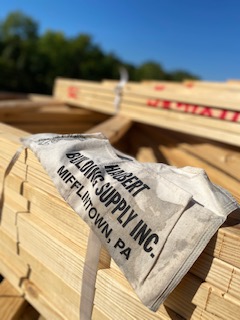Whether it’s formally documented or not, there is a “Chain of Command” that exists in every homebuilding company. I’m talking about that chain that is created if/when there is an issue that comes up on the jobsite.
That chain might look something like this (from top-to-bottom): Owner – President/COO – VP of Construction – Project Manager – Superintendent.
Each person higher on that chain technically outranks and can overrule someone lower than them. But – that hierarchy can cause issues with Team morale if decisions are made flippantly (or, worse, abused).
Let me give you an example of what I’m talking about.

A plumbing contractor is stretched thin and needs to decide which of two of your jobs she should go to today. One of those jobs is right on schedule and has been flowing along smoothly. The other job has suffered from delays and is already 10 days behind schedule.
The Superintendent in the field has a decision to be made. Quite honestly, with the information I’ve given you, neither you nor I can say which of the two is the right choice (since there are so many more factors that go into this). However, for this example, we’ll figure that the Superintendent decides to push the delayed job ahead and send the plumber there first (and add a small delay to the smooth-flowing job).
Easy decision, right?
OK – let me throw a monkey wrench into this. The smooth-flowing job happens to be the in-laws of the VP of Construction. And those in-laws are living with the VP of Construction and his wife until their new home is done. The VP is taking a keen interest in the construction of that home – as he’d like to have the in-laws out of his home to get his privacy back (and just happens to pass by the jobsite every morning on his way into the office – and – checks the online schedule relentlessly to see that all is progressing without delay).
The day of the plumbing rough is here, and the plumber doesn’t show up on the in-law’s jobsite. That VP drives by and sees no plumber working. With cellphone handy, the VP calls the plumber and asks why she didn’t show up as scheduled. The plumber explains that she explained her two-job dilemma with the Superintendent, and he directed her to go to the delayed job.
This is the point where things can go wrong (and, quite honestly, I’ve seen it go wrong often in this time).
A Chain of Command Decision Is Made
The VP of Construction says, “I don’t care what the Superintendent told you. This job takes priority over the other one. So, pack up and head over to this job. I’ll talk about it with my Superintendent and let them know I overruled him.”
The plumber gets off the phone and tells her crew to pack up. They’re headed to the other job per the direction of the VP.
And that in-law job gets roughed in and progresses along.
Let’s make sure we know what this decision choice did:
- It kept the in-law house on schedule (and the VP is one day closer to having things back to normal in his household).
- It delayed the other job even more – which is probably irritating those home buyers.
- It cost the plumber money for unloading/reloading on the first jobsite. Then, driving to and unloading on another jobsite.
- The Superintendent – who had already made a decision (and, likely, several phone calls and/or scheduling adjustments with his decision) – now has to reschedule a bunch of trades again.
But – the bigger issue here is that the VP of Construction broke the chain of command. The Superintendent’s authority was just kicked to the curb in this instance. The actions of the VP told the plumber that the Superintendent’s decision was not thought out appropriately.
The Superintendent, however, had thought about the entire situation – taking into account the multitude of factors that affect all of the jobs he’s managing right now (and, often, other jobs by other Superintendents at the homebuilder’s business). And it really was the best decision for the situation (well, for all EXCEPT the VP of Construction).
Now, the VP had not only sent the wrong idea to the plumber, but he had also killed the morale of the Superintendent (and the Project Manager who happened to be the contact person for home buyers). Either one of these two (or both) might now throw their hands in the air and think “Why do I even try? If the VP is going to run my jobs, what am I needed for?”
Yeah. It might be an overreaction to a single instance, but that’s not the point. If the VP would do it one time (for this one special customer), he can just as easily do it for any customer for any reason in the future, and the Superintendent has a right to be concerned.
What Should Have Been Done?
The situation I explained here is not unusual. Chances are that something similar to it will happen where you are working. Things come up. People know people (and those people will contact those other people asking for favors, etc.).
How that situation is handled really does make the difference.
The VP of Construction (who has every right to watch the schedule of a job like a hawk) should have called the Project Manager directly to inquire why no one was on his in-law’s jobsite as scheduled. That’s the key distinction – called the Project Manager and NOT the plumber directly.
He would ask the Project Manager why the plumbers weren’t there. If that Project Manager is on top of her job, she would know instantly why the decision was made between the jobs. If she didn’t know, her next call would be to the Superintendent to find out the information (and then get back to the VP with the details).
Hopefully, the VP would hear the reason(s) for the delay on his in-law’s house and understand. He’d have to suck up a few more days of living with his in-laws for the good of the overall company. A conversation can occur with the Team to figure out other places in the schedule for the in-law’s house that time can be made up in the future.
This way, the VP can stay connected and still see a speedy schedule completion on his in-law’s house. The Team stays involved with the entire decision, and the schedule is managed by the Superintendent with the Trades. The chain of command has stayed intact.
What If The VP Still Wants To Move Up This In-Law Schedule?
What if the VP throws overall logic to the wind and wants to get his meddlesome mother-in-law out of his house so quickly that he wants to ensure there is no lost day in the schedule (including today)?
I hope you can see why it’s not a great decision for the company, but humans will do things that aren’t always in the best interest. If that’s the case,
If this is the case, the discussion still has to happen with the full Team involved. When the VP says “Get them there today. I understand that the other job will be delayed again.”, he needs to remember that (especially if Superintendents are given bonuses on time of completion for jobs).
The VP needs to understand how much the delayed job will be delayed again. There’s not much worse than a VP who quickly forgets the consequences of his actions when he grills the Superintendent on why a job was behind schedule (for which that VP caused the delay).
Let the Superintendent make the call to the plumber to explain the change in his decision from before. Hopefully, the Superintendent will NOT say “The VP wants this done instead and overruled me,” because that’s not much better than the VP telling the Trade directly.
The Project Manager should proactively call the home buyers of the delayed job and let them know that she understands the job is delayed, but the Team is planning spots in the near future of construction where the schedule will be made up.
And the Team should expect a bill from the plumber for the inefficiencies and lost time she is getting for this last-minute change. Which job should get charged that bill? In my opinion, that job cost should go to the in-law’s house. The Team will have to make that decision.
What Do You Think?
Given the example I gave above, I’d love to hear your thoughts! Do you agree/disagree with the chain of command? What have you seen in your own company (no names needed)?








